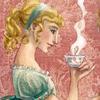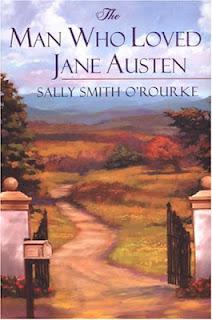 Sally Smith O'Rourke is one of the new writers at Austen Authors and I'm really glad she accepted to be featured at My Jane Austen Book Club. She published a first Austen - related novel titled The Man Who Loved Jane Austen and is going to publish a new one soon: Your Affectionately Jane Austen. She has written a lovely piece about romance in Austen's work and is granting two of you the chance to win her first book: The Man Who Loved Jane Austen. Enjoy her post and leave your comments! The giveaway details are below.
Sally Smith O'Rourke is one of the new writers at Austen Authors and I'm really glad she accepted to be featured at My Jane Austen Book Club. She published a first Austen - related novel titled The Man Who Loved Jane Austen and is going to publish a new one soon: Your Affectionately Jane Austen. She has written a lovely piece about romance in Austen's work and is granting two of you the chance to win her first book: The Man Who Loved Jane Austen. Enjoy her post and leave your comments! The giveaway details are below.
*********
“I could no more write a romance than an epic poem. I could not sit seriously down to write a serious romance under any other motive than to save my life; and if it were indispensable for me to keep it up and never relax into laughing at myself or other people, I am sure I should be hung before I had finished the first chapter.” ( From a letter of 1 April 1816)
In the twenty-first century romance is two people falling in love in spite of their differences. For Jane Austen romance in books generally involved women in peril saved by heroic men, often times using supernatural means or in adventurous situations. The gothic romances of the eighteenth century were filled with scandal and monsters (human and otherwise). Often the two young lovers in these stories are kept apart until the end and only after much terror, horror and heartache. And there are times they don’t end up together at all.
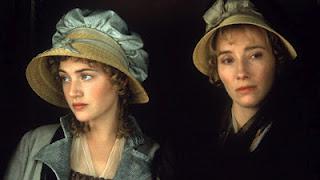 In Jane’s Sense &Sensibility, Eleanor’s
love for Edward is intensified when she finds out about the secret engagement
to Lucy and learns he is doing the honorable thing by accepting responsibility
for the rash actions of his youth. His love for Eleanor, likewise is
intensified by her acknowledgement of it and her desire to make life easier for
him and his intended spouse. For us Eleanor and Edward coming together is very
romantic. But for Jane it is simply two respectable and honorable people who belong
together.
In Jane’s Sense &Sensibility, Eleanor’s
love for Edward is intensified when she finds out about the secret engagement
to Lucy and learns he is doing the honorable thing by accepting responsibility
for the rash actions of his youth. His love for Eleanor, likewise is
intensified by her acknowledgement of it and her desire to make life easier for
him and his intended spouse. For us Eleanor and Edward coming together is very
romantic. But for Jane it is simply two respectable and honorable people who belong
together.
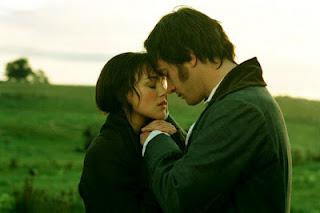 So too with Pride &Prejudice.Today, Darcy’s
first proposal is thought to be romantic (“You must allow me to tell you how
ardently I admire and love you”) and even though Elizabeth takes what follows as
an insult, as does today’s reader but in Jane’s time the girl would have over
looked the slight and been honored for a proposal from a man so obviously her
superior. Which is what Darcy is expecting so is stunned by Elizabeth’s
refusal. Angry and humiliated by the fact that he followed his heart and not
the rational part of his brain he exists.
So too with Pride &Prejudice.Today, Darcy’s
first proposal is thought to be romantic (“You must allow me to tell you how
ardently I admire and love you”) and even though Elizabeth takes what follows as
an insult, as does today’s reader but in Jane’s time the girl would have over
looked the slight and been honored for a proposal from a man so obviously her
superior. Which is what Darcy is expecting so is stunned by Elizabeth’s
refusal. Angry and humiliated by the fact that he followed his heart and not
the rational part of his brain he exists.
For Jane Austen the scene typifies the arrogance of his class. Elizabeth’scomment later to Lady Catherine ‘…he is a gentleman; I am a gentleman’s daughter; so far we are equal’ is how Jane truly felt; that class and situation should have no bearing on a match.
This equalitarianism is present in all her books. To Jane everyone was the same no matter their birth right. In Mansfield Park specifically she shows how the upper class, the so called ‘best people’ can be and often are common, corrupt and amoral. Fanny, born into the harshness of poverty is, on the other hand, demure, modest and morally upright.
In Sense and Sensibility, Eleanor and Edward marry in spite of his disinheritance.In Pride and Prejudice, Elizabeth and Darcy marry after Darcy shows his true compassion.In Mansfield Park, Edmund marries his low born cousin Fanny Price.Northanger Abbey has Henry Tilney disobeying his father to ask for Catherine Morland’s hand. Only in Emma are the lovers of equal status.
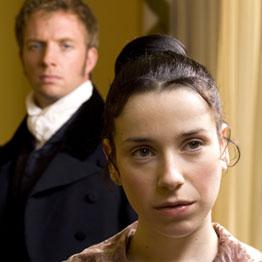 For present day romantics, Persuasion is
the ultimate romantic story. Anne Elliot who is the daughter of a Baronet is
initially persuaded not to marry a lowly sailor. However, Anne never loves
another and is brought together with Captain Wentworth again when he declares “Dare
not say that man forgets sooner than woman, that his love has an earlier death.
I have loved none but you. Unjust I may have been, weak and resentful I have
been, but never inconstant. You alone have brought me to Bath.”
For present day romantics, Persuasion is
the ultimate romantic story. Anne Elliot who is the daughter of a Baronet is
initially persuaded not to marry a lowly sailor. However, Anne never loves
another and is brought together with Captain Wentworth again when he declares “Dare
not say that man forgets sooner than woman, that his love has an earlier death.
I have loved none but you. Unjust I may have been, weak and resentful I have
been, but never inconstant. You alone have brought me to Bath.”
For Jane Austen none of this was romantic, it was simply the way it ought to be. That marriage should be based on love and partnership; on mutual understanding. Not on money, land and connections.
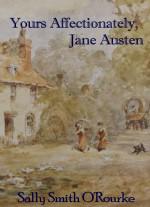 Her gift of taking the ordinary in people
and situations is what keeps her alive today. We can all imagine ourselves as
Elizabeth Benett, Anne Elliot or Emma Woodhouse being loved unconditionally.
The thing that makes Austen a romantic for modern times is that Jane’s men love
the women, even the young Catherine and demure Fanny, because they are
independent in thought and strong in character; not in spite of it.
Her gift of taking the ordinary in people
and situations is what keeps her alive today. We can all imagine ourselves as
Elizabeth Benett, Anne Elliot or Emma Woodhouse being loved unconditionally.
The thing that makes Austen a romantic for modern times is that Jane’s men love
the women, even the young Catherine and demure Fanny, because they are
independent in thought and strong in character; not in spite of it.
Jane Austen’s ability to create characters and situations we can all relate to even two hundred years later is the reason she is considered the of the greatest writers of romance in the world. Something, I believe,that would make her laugh.And she would consider it absurd that anyone even remembers her. But we do and I suspect will for another two hundred years.
Sally Smith O'Rourke
GIVEAWAY TIME!
There are 2 copies of The Man Who Loved Jane Austen: 1 for US readers and 1 for the rest of the world.
Leave your comment, don't forget your e-mail address and specify the country you live in or whether you enter the giveaway for the US or for the rest of the world. The contest ends on June 4th when the names of the winners are announced.
Visit Sally's site
